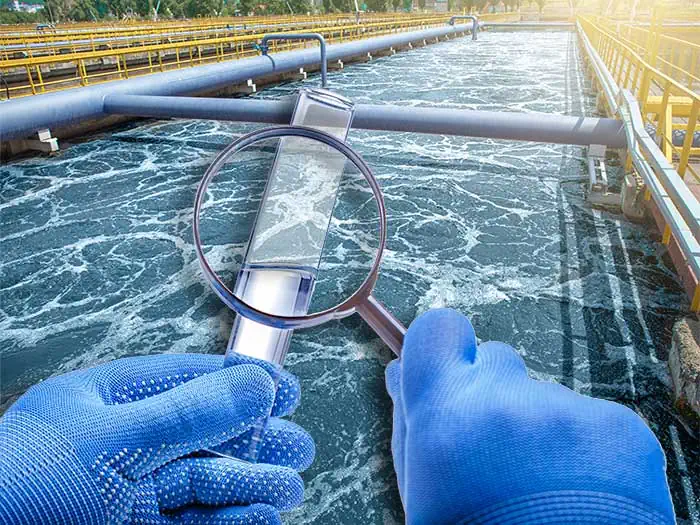The Importance of PFAS Treatment in Restoring Polluted Water
The Importance of PFAS Treatment in Restoring Polluted Water
Blog Article
Exactly How PFAS Treatment Makes Sure Tidy and Lasting Water
The visibility of PFAS, generally known as "for life chemicals," presents considerable obstacles to water top quality and public wellness. The implications of these treatments extend beyond instant wellness benefits; they increase critical concerns about lasting water administration strategies that need to be resolved to ensure a durable future.

Comprehending PFAS Contamination
PFAS, or per- and polyfluoroalkyl compounds, have become a substantial environmental concern as a result of their extensive prevalence and persistence in the setting. These synthetic chemicals have been utilized in different commercial applications and consumer products, consisting of non-stick pots and pans, water-proof garments, and food product packaging, due to their special residential or commercial properties such as water and grease resistance.
The contamination of dirt and water sources by PFAS happens mainly through commercial discharges, firefighting foam use, and leaching from garbage dumps. pfas management. When launched, these substances are resistant to degradation, leading to their buildup in the atmosphere. This perseverance increases vital problems, as PFAS can take a trip cross countries with groundwater and surface area water systems, impacting alcohol consumption water products and communities

Health And Wellness Dangers of PFAS
The determination of PFAS in the atmosphere raises substantial health and wellness issues for individuals revealed to these compounds. Research has actually connected PFAS direct exposure to different unfavorable health and wellness impacts, including immune system disorder, liver damage, and increased danger of specific cancers.
The universality of PFAS in customer products, such as non-stick pots and pans, water-repellent textiles, and food packaging, more enhances the threat of exposure. Consuming alcohol water contaminated with PFAS is a significant problem, as these chemicals can leach right into groundwater sources. At risk populations, consisting of children and those living near industrial websites, may encounter elevated risks as a result of their establishing systems and possible for higher direct exposure levels.
As awareness of these wellness dangers proceeds to grow, governing companies are starting to develop guidelines for PFAS levels in alcohol consumption water. Public health and wellness efforts are vital to mitigate exposure and shield neighborhoods from the lasting check out this site effects of these dangerous substances.

Cutting-edge Treatment Technologies
How can we effectively tackle the obstacles presented by PFAS contamination in water sources? Cutting-edge treatment technologies are becoming important solutions in the mission for clean water. These approaches focus on the elimination or destruction of per- and polyfluoroalkyl materials (PFAS), which are well-known for their perseverance in the atmosphere.
One promising technique is adsorption using sophisticated products, such as triggered carbon and ion exchange resins. These products have actually shown effectiveness in recording PFAS molecules from water. One more noteworthy innovation is membrane layer filtering, which makes use of nanofiltration and reverse osmosis to separate impurities at the molecular degree, therefore giving a barrier versus PFAS.
Additionally, advanced oxidation procedures (AOPs) employ strong oxidants to damage down PFAS compounds right into harmless by-products. This approach is particularly efficient for dealing with highly polluted water resources. Bioremediation methods, using particular bacteria, are likewise being explored to break down PFAS.
As study continues, crossbreed systems that incorporate numerous technologies may supply enhanced performance, attending to the intricacies of PFAS contamination. The growth and implementation of these innovative treatment innovations are crucial steps toward making sure this hyperlink the security and sustainability of our water sources.
Advantages of Effective PFAS Therapy
Efficiently treating PFAS contamination in water resources dramatically boosts public health and wellness and ecological safety and security. PFAS, usually described as "forever chemicals," are immune to deterioration and can gather in the human body, resulting in major wellness threats such as cancer, liver damage, and body immune system dysfunction. By executing efficient treatment techniques, communities can lower exposure to these unsafe compounds, ultimately boosting the health outcomes of their populations.
Furthermore, successful PFAS treatment contributes to the preservation of regional environments. Polluted water can detrimentally impact marine life and interfere with the fragile equilibrium of regional habitats. By guaranteeing tidy water, therapy procedures protect biodiversity and preserve eco-friendly integrity.
Furthermore, reliable PFAS remediation can promote public self-confidence in water quality. When neighborhoods are guaranteed that their alcohol consumption water is without unsafe pollutants, it advertises a feeling of safety and well-being. This depend on is crucial for community interaction and assistance for recurring water monitoring initiatives.
Future of Water Sustainability
Amidst expanding concerns regarding water high quality and deficiency, the future of water sustainability pivots on innovative methods and collective initiatives. As areas face the looming risks of pollutants like PFAS, the development of sophisticated treatment innovations is essential. These technologies not just focus on the elimination of dangerous materials but likewise promote the reuse and recycling of water, thus lowering overall demand.
Furthermore, efficient water administration plays a critical role in ensuring sustainable methods. Policymakers need try this website to incorporate clinical study with governing structures to establish clear standards for water usage and treatment. Stakeholder interaction, including regional areas and industries, promotes a feeling of common duty and urges sustainable methods across numerous sectors.
Investment in facilities is likewise vital; updating aging systems to integrate contemporary filtering and filtration approaches can significantly improve water high quality. Additionally, accepting eco-friendly innovations, such as natural filtration systems, can give environment-friendly options.
Inevitably, the future of water sustainability hinges on an all natural strategy that incorporates modern technology, plan, and community participation. By focusing on these components, we can guard our water resources for generations to come, ensuring tidy and lasting water for all.
Verdict
In final thought, the reliable treatment of PFAS is important for making certain tidy and lasting water. Ultimately, robust PFAS treatment approaches contribute to long-term strength in water monitoring, fostering public depend on in water high quality and advertising lasting techniques.
Report this page